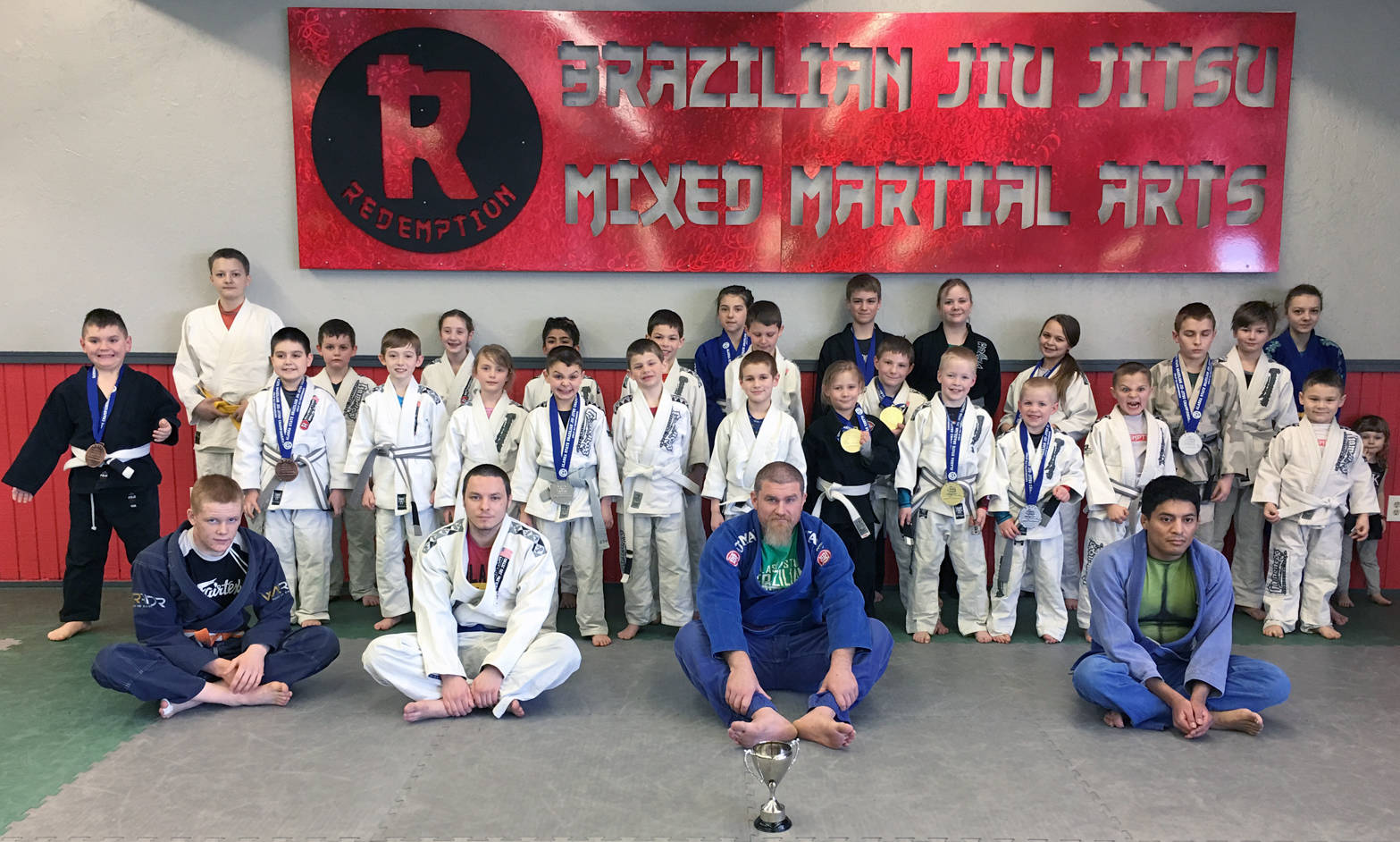Redemption MMA of Soldotna tied for second in the kids division and took second place in the adult division Saturday in Anchorage at the state tournament for the Alaskan Brazilian Jiu-Jitsu Federation.
Isaac Kolesar, owner of Redemption MMA, said he had about 50 members competing at the tournament, which had about 250 competitors.
“Normally, we take second or third place when we go up there,” said Kolesar, adding that his club has about 80 members. “It’s pretty regular.”
Kolesar, who said he has moved to coaching mostly mixed martial arts, gave credit to jiu-jitsu head coach George Grossman for success at the tournament.
Kolesar highlighted three members.
Nikiski’s Mae Britton took double gold, something that Kolesar said has become normal. Britton is a past Masters Worlds gold medal winner, the first in Alaska to win gold there.
In blue belt at state, Britton won her weight class at 145 pounds and above, and also the open division at blue belt.
Kolesar said getting to blue belt takes about two years of consistent training. Then it’s three to five years before getting to purple, with brown and black coming next. A black belt takes 10 years.
“When I was in Anchorage, I was training an anesthesiologist and an eye doctor,” Kolesar said. “They both always complained it took longer to get a black belt than a doctorate.”
Soldotna’s Melyssa Nordwall, also a blue belt, got silver at 145 and up and also in open weight.
And the most eye-popping result came from Sean Babitt of Kasilof, who took double gold in adult white belt for competitors up to 168 pounds and in the open division.
The kicker is Babitt is only 14 years old and was still taking down fighters from the Alaska Fighting Championship, the top mixed martial arts brand in Alaska.
Last year, Babitt also competed against adults at state and won his weight division, but he did not compete in the open division last year.
“He went up against a number of AFC professional fighters, and beat everybody including a guy close to 250 pounds,” Kolesar said.
Kolesar said Brazilian jiu-jitsu differs from mixed martial arts because MMA includes things like punching and striking, while Brazilian jiu-jitsu is grappling.
“Brazilian jiu-jitsu is probably the most important art you can study to be a professional fighter, with striking after that,” Kolesar said. “If a guy beats another guy grappling in an MMA fight, he’ll have the advantage.
“It’s a very real martial art.”
Kolesar said that Babitt was able to win all of his matches by submission, making his tournament even more impressive.
Babitt has won the U.S. Open in California in his division, and later this year Kolesar said Babitt will try and win the International Brazilian Jiu-Jitsu Federation Juvenile Worlds.
Last year, Elisabeth Clay, then training at Redemption MMA, was first at Juvenile Worlds in heavyweight and second in the open division. Kolesar said he was the first Alaskan to win at Juvenile Worlds.
Clay, now training in Anchorage, also won the Pan Ams last year in her weight class and in blue belt.
“These kids are doing some cool stuff, for sure,” Kolesar said.

